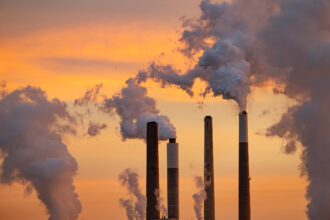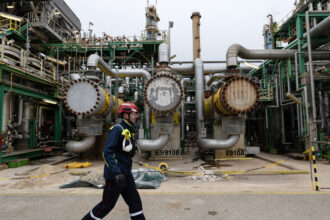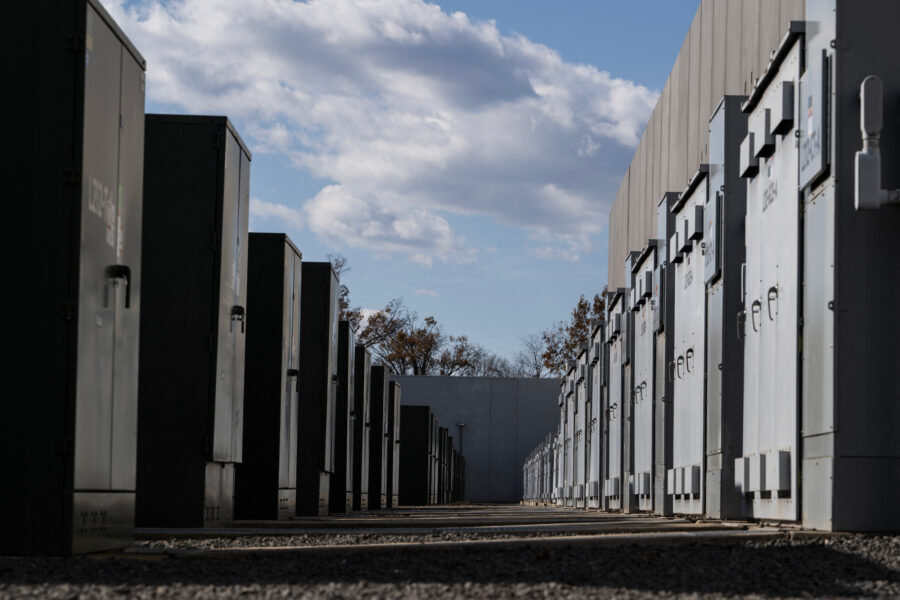As the Major Economies Forum on Energy and Climate gets under way, Greenpeace’s new executive director looks at the challenges facing President Obama and the need to play hardball with Congress to ensure world-leading climate action.
When 16 heads of government descend on Washington today for President Obama’s Major Emitters Forum, he will hear the same demand from each of them: that the United States take big action, immediately, to slash climate pollution – or risking putting a real global solution to the climate crisis at risk.
Even though President Obama was elected on a platform of delivering action on global warming and has passionately reiterated those pledges since becoming president, he will have to overcome enormous skepticism from his international negotiating partners.
At this summit, it is they who will be repeating Ronald Reagan’s maxim about Soviet overtures at the beginning of the glasnost era: Trust, but verify.
The presidents and prime ministers have good reason to doubt: For all Obama’s talk (and President Clinton’s before him) about the urgency of the climate crisis, the United States has done little to nothing to address global warming pollution, even as almost every other developed country has at least started down the road to a climate-friendly economy.
Of course, there are some sprigs of hope: the House Energy and Commerce committee is debating a bill that constitutes a good first step in the transition to a prosperous clean energy economy. But even that bill currently falls short of the 25-40 percent short-term cuts in U.S. pollution that scientists say is necessary to avoid the worst impacts of global warming: massive droughts, floods, extreme weather, and extinction of endangered species like the polar bear, not to mention a $3.8 trillion drag on the economy.
That bill, however, faces huge challenges: Republicans and even some Democrats with close ties to the coal industry are likely to try to water it down even further. And even if it makes it out of the House intact, it will be a big political challenge to pull together the 60 votes necessary to pass major legislation in the Senate.
If the United States doesn’t take action that matches its responsibility, it’s unlikely other countries will meet theirs: China will continue to build new, very dirty coal fired power plants, and tropical countries like Indonesia, Brazil, and the Congo will continue to allow giant agricultural interests to burn down their forests. And the climate will rapidly careen out of control.
But President Obama can single-handedly avert that fate with a little political hardball. His Environmental Protection Agency recently declared the climate change does indeed represent a threat to human health and welfare – giving the Obama administration the authority to unilaterally limit climate pollution through the Clean Air Act.
No negotiation with ornery senators necessary. No bargaining with committee chairmen seeking to protect some home-state polluter that makes big campaign contributions. Just an honest look at the science – and what it’s going to take to deliver future generations a living planet. But so far, the Obama administration has danced around this authority and implied they’re only using it as a back-up in case Congress doesn’t act.
If Obama is serious about getting other countries to act in concert with the United States to meet this global challenge, that’s got to change. A firm declaration that he will regulate carbon dioxide to the maximum extent possible will bring developing countries to the table in a serious way.
It will also ensure that Congress passes a reasonably strong bill: If they don’t pass something commensurate with what Obama does through the Clean Air Act, he can just veto it.
It’s hardball, sure, but it’s what it will take to solve this great crisis.
About This Story
Perhaps you noticed: This story, like all the news we publish, is free to read. That’s because Inside Climate News is a 501c3 nonprofit organization. We do not charge a subscription fee, lock our news behind a paywall, or clutter our website with ads. We make our news on climate and the environment freely available to you and anyone who wants it.
That’s not all. We also share our news for free with scores of other media organizations around the country. Many of them can’t afford to do environmental journalism of their own. We’ve built bureaus from coast to coast to report local stories, collaborate with local newsrooms and co-publish articles so that this vital work is shared as widely as possible.
Two of us launched ICN in 2007. Six years later we earned a Pulitzer Prize for National Reporting, and now we run the oldest and largest dedicated climate newsroom in the nation. We tell the story in all its complexity. We hold polluters accountable. We expose environmental injustice. We debunk misinformation. We scrutinize solutions and inspire action.
Donations from readers like you fund every aspect of what we do. If you don’t already, will you support our ongoing work, our reporting on the biggest crisis facing our planet, and help us reach even more readers in more places?
Please take a moment to make a tax-deductible donation. Every one of them makes a difference.
Thank you,












